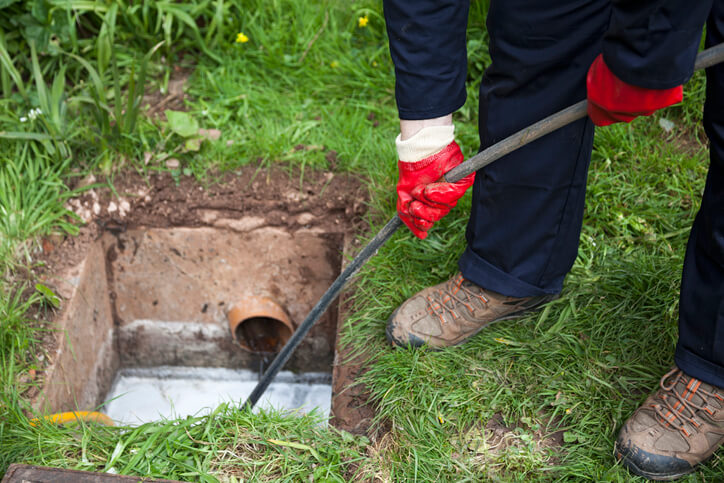How Much Water Can My Septic System Handle?
Two common questions Jones Plumbing & Septic Tank Service receives from customers are: How long does a septic system last? And, what is my septic tank capacity? The short and long answer is: it depends. However much water you and others in the house use every day plays a large role in answering these questions.
How A Septic Tank Moves Water
The moment water from a household tap enters the drain, it’s considered wastewater. Once inside the tank, the water and other liquids generally flow through the tank and a filter toward the leach field. Solids tend to settle to the bottom as water moves on, but if the tank receives a large amount of water at once — such as is the case when hosting guests — then the solids could flow toward and block the exit pipes.

How Many People Can A Septic Tank Handle?
It comes down to daily water usage. Most residential tanks have a capacity ranging from 750 gallons to 1,250 gallons and the average person uses 60 gallons to 70 gallons of water a day. The problem is that when septic systems and tanks are installed, contractors often choose plumbing hardware based on the size of the house. Jones Plumbing & Septic Tank Service can determine the appropriate capacity of your septic tank following a septic tank inspection.
3 Tips For Caring For Your Septic System
Living with a septic tank isn’t arduous or tedious, but requires preparedness and patience to enjoy the full lifespan of the system. Here are three tips from Jones Plumbing & Septic Tank Service to care for your septic system.
1. Understand How Much Water Your Daily Activities Use
While older fixtures use more water than newer, high-efficiency fixtures, many homes have a combination of both. Consider how much water is used by old vs. new water-appliances and fixtures based on the following estimates.
- Bathroom sinks: 1.5 gallons to 2.2 gallons per minute
- Dishwashers: 4 gallons to 6 gallons per cycle
- Kitchen sinks: 2 gallons to 5 gallons per minute
- Showers: 2.1 gallons per minute or 17.2 gallons per shower
- Toilets: 1.28 gallons to 7 gallons per flush
- Washing machines: 15 gallons to 45 gallons per load
2. Set Up A Laundry Plan
Scheduling several loads across a week is helpful to a septic tank. Wash bedding and clothing in batches while going about other household tasks. Spreading water usage across several days allows solids time to settle and water to filter out in your septic tank system.
3. Fix Leaky Faucets & Fixtures
Did you know up to 200 gallons of water can be squandered each day because of a running toilet? This sheer volume of water can cause too much water in the septic system, leading to other issues, such as standing water in a yard.
Schedule Professional Septic System Care
Have drains started to back up in your home? Or, are soggy spots appearing in your yard? If so, then it’s time to call Jones Plumbing & Septic Tank Service to schedule septic tank services. While most septic tanks can handle a considerable amount of water, sometimes they’re inundated with distressing results. If your system is struggling to keep up with household demand, or you think it’s time for a septic tank cleanout, contact us today to schedule an appointment!
